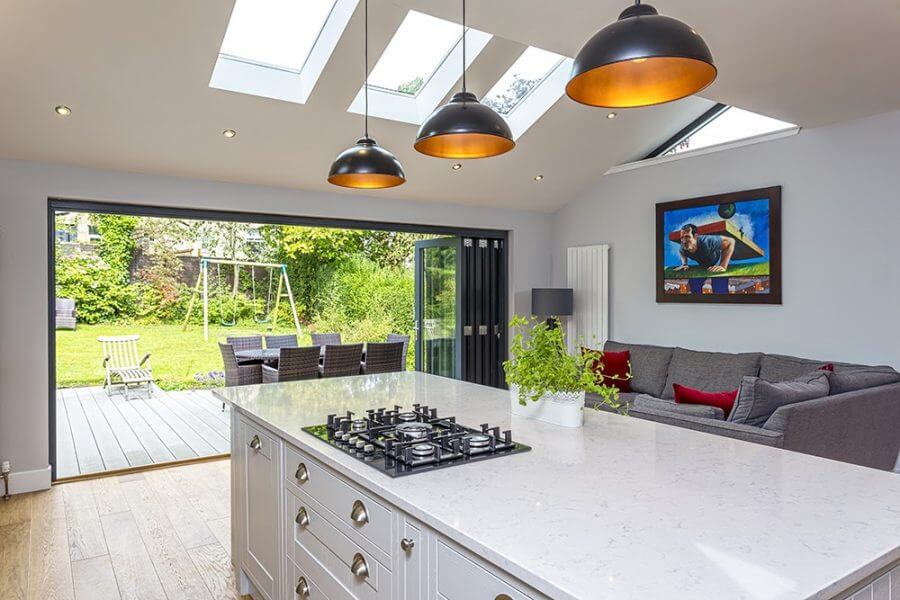Understanding Roof Extensions
When planning an extension, the roof style you choose can dramatically affect both the look and the performance of your new space. Let’s delve into what pitched and flat roofs offer and which might be the best fit for your project.
Pitched Roof Extensions
Pitched roofs are characterised by their sloping sides and are often chosen for their traditional appearance.
Pros
- Aesthetic Compatibility: They blend well with many traditional homes and are often favoured by planning departments for maintaining the character of a neighbourhood.
- Durability: Pitched roofs are generally more durable and weather-resistant, thanks to their design that prevents water pooling.
- Natural Light: The angle of a pitched roof can allow for more natural light. This helps make the space inside seem bigger, as well as affording all the health benefits that come with more natural light exposure.
- Insulation: Offers ample space for thicker insulation, helping to reduce energy costs and keep your space warmer.
Cons
- Higher Cost: More complex construction could lead to higher costs.
- Architectural Limitations: Not suitable for all house types.
- View Impact: Can potentially block views or reduce light for neighbouring properties.
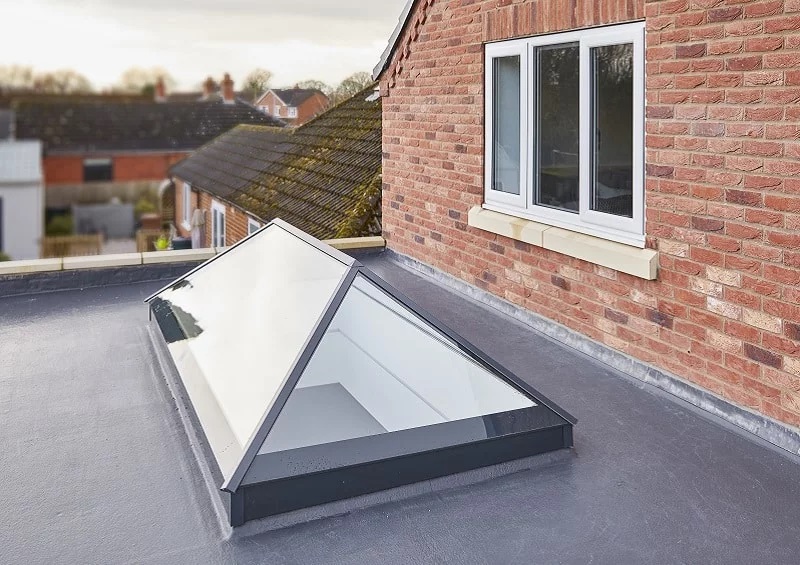
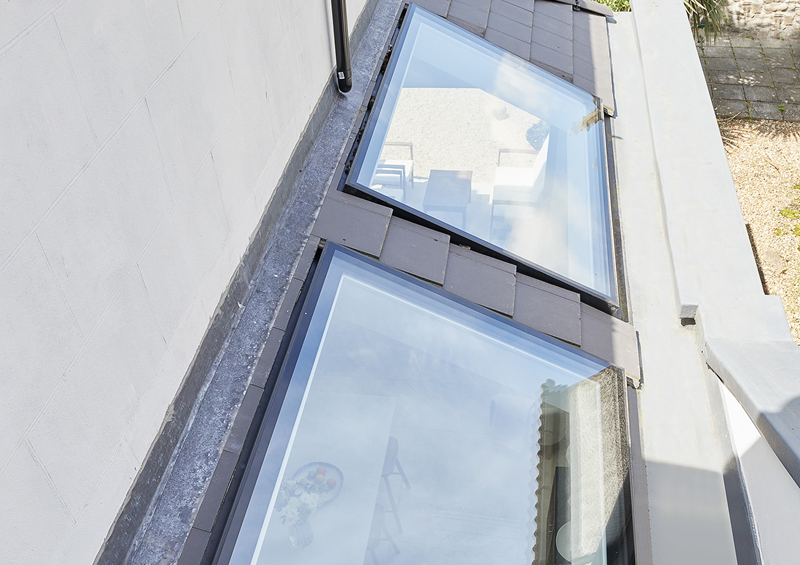
Flat Roof Extensions
Flat roofs are favoured for their modern look and simpler construction.
Pros
- Cost-Effectiveness: Generally cheaper and quicker to construct than pitched roofs due to reduced labour and material costs.
- Versatility in Design: Suitable for a variety of modern architectural styles.
- Rooflights Flexibility: Ideal for integrating rooflights, including stylish options like roof lanterns which can create an illusion of higher ceilings.
- Contemporary Appeal: Offers a sleek, modern aesthetic.
Cons
- Lower Ceilings: This architectural feature can make the space feel more enclosed. However, integrating elements like roof lanterns can effectively mitigate this by creating an illusion of greater height, enhancing the spatial quality of the extension.
- Maintenance: May require more maintenance due to the flat surface, although modern materials have significantly improved their longevity and performance.
- Energy Efficiency: Generally less energy-efficient than pitched roofs unless specifically designed with advanced insulation and reflective materials.
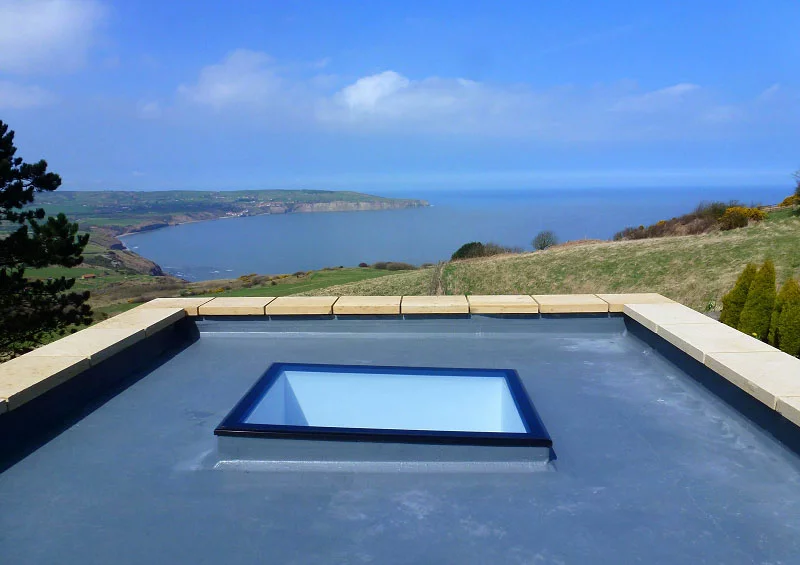
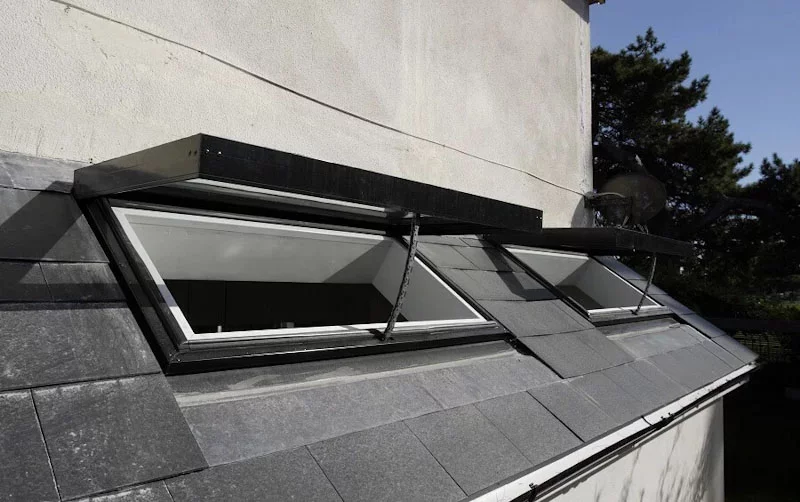
Comparing Rooflights for Both Roof Types
Both pitched and flat roofs can accommodate various rooflights that enhance natural light and ventilation. Flat roofs can particularly benefit from roof lanterns, which not only bring in ample light but also create a visual effect of more height within the room. Pitched roofs can seamlessly incorporate skylights that align with the roof’s slope, enhancing aesthetics and functionality.
Consider your home’s architectural style, your budget, and your long-term needs when choosing between a pitched and flat roof extension. Consulting with a professional can provide tailored advice that considers all aspects of your specific situation.
Choosing the right roof extension and rooflight is a significant decision that affects your home’s overall look, feel, and function.
Whether you opt for a pitched or a flat roof extension, Roof Maker have got you covered when it comes to rooflights. Call us today on or get a quote online.
